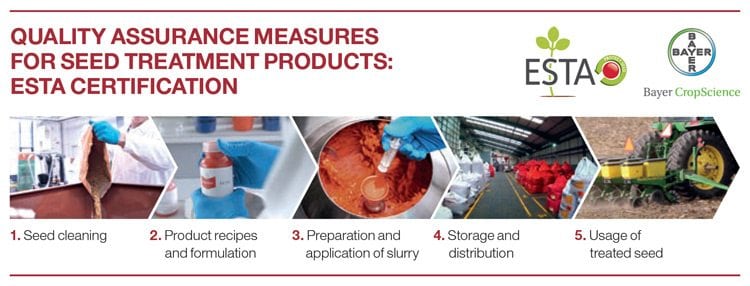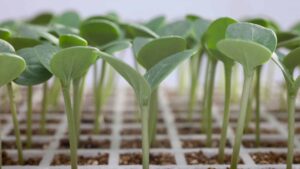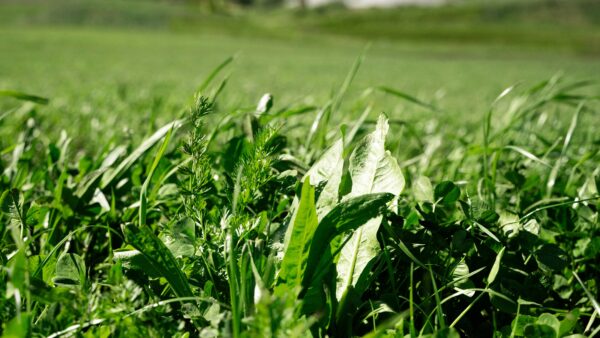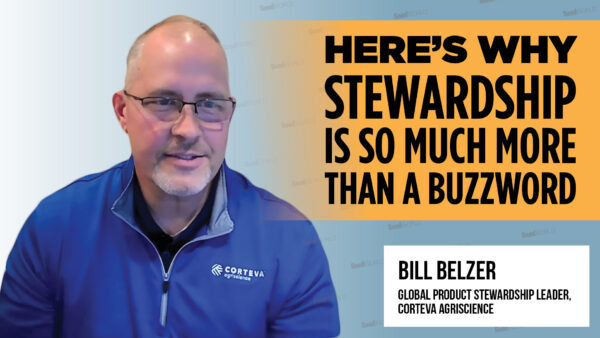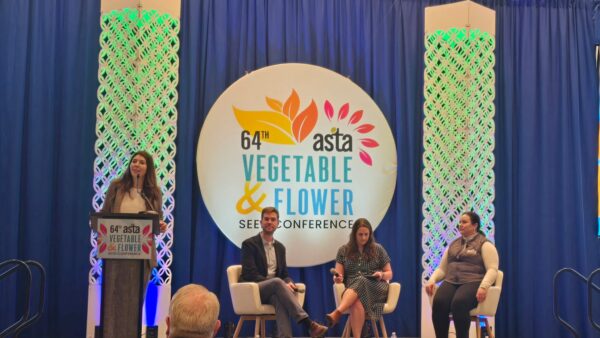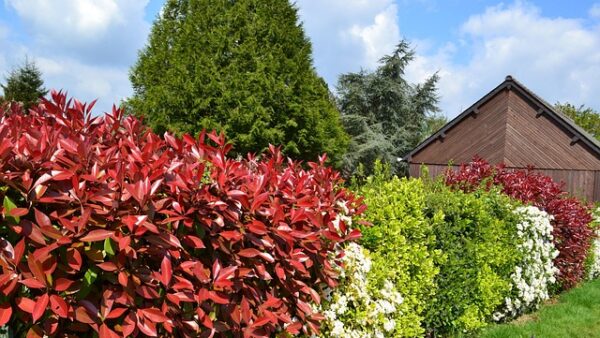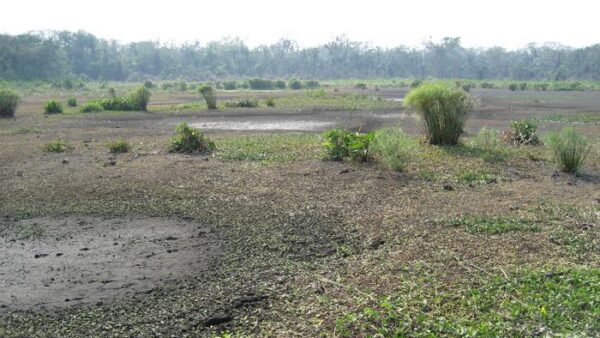Why is stewardship so important to Bayer CropScience? The answer is that proactive stewardship makes a significant contribution to sustainable agriculture from field to shelf, as well as underlining the company’s professionalism and responsibility to protect human health and the environment, and to ensure product integrity.
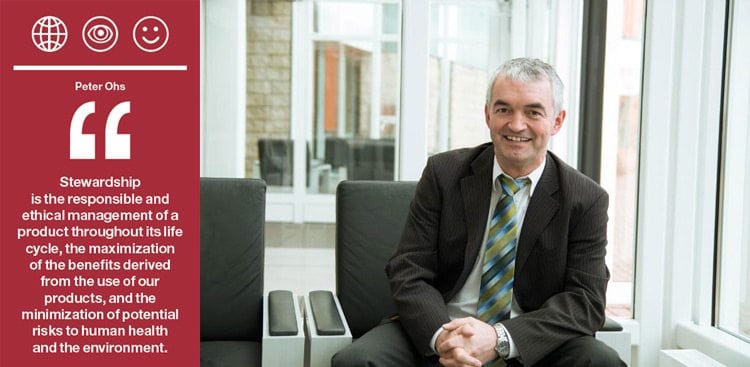
Stewardship is a catchy term. But what does it actually mean? Peter Ohs, Senior Global Stewardship Manager Bayer SeedGrowth at Bayer CropScience, has the answer: “The responsible and ethical management of a product throughout its lifecycle, the maximization of the benefits derived from the use of our products, and the minimizing of potential risks to human health and the environment.” Stewardship measures address all aspects of a product – either plant protection products or seeds – from its development to the disposal of any related waste. Bayer CropScience’s Product Stewardship Policy and Principles are based on the FAO Code of Conduct on the Distribution and Use of Pesticides, and are regularly updated to take into account amendments or additions to the FAO Code of Conduct.
Pursuing proactive stewardship
Stewardship is nothing new for Bayer CropScience. What has changed in recent years is the company’s mindset, which has switched from reactive to proactive stewardship. This new mindset now drives all the stewardship activities. “We have established processes which allow us to closely monitor the safe use of our products and to address potential risks,” Peter Ohs points out. “For those cases we develop and implement stewardship measures.”

One good example is what Bayer CropScience has done in the cotton sector in West Africa. “Of course, we care about what customers are doing with our products,” Peter Ohs says. “It’s not enough to simply put instructions on a product label. We provide information, training, and support (e.g., gloves) to users on how to protect themselves and the environment.
Additionally, we have trained employees of a seed company on a new technology for cottonseed cleaning and treatment. This has a positive effect on the environment, as the new cleaning method allows less product to be used, but additionally is resulting in a better adhesion of the product to the seed surface with less exposure to the farmer during sowing.”
Addressing potential risks
This proactive search for potential risks allows Bayer to continuously improve its stewardship measures. Seed coatings developed at the Bayer SeedGrowth Center of Excellence in Méréville, France, can reduce dust emissions by up to 95 %. And a deflector fitted to a pneumatic vacuum sowing machine lowers dust emissions by as much as 90 %, as field tests have shown.

Seed-box lubricant
Another good example of applied stewardship is the Bayer CropScience fluency agent. Used as a seed-box lubricant, it dramatically reduces dust emissions from a vacuum planter, e.g., in corn by up to 88 % compared to talc. This fluency agent is thus the ideal replacement for talc, graphite, or blends, can be used with all makes and types of planters, and has no impact on planting accuracy.
Cleaning wastewater
For better wastewater management of residual sprayer solutions, Bayer CropScience developed a system called Phytobac™, a biological system for cleaning wastewater on farms. A waterproof pit filled with a substrate of soil and straw provides the ideal habitat for microbial degradation, with the cleaned wastewater evaporating from the substrate and returning to the water cycle. Bayer CropScience is also developing alternative cleaning technologies like electrochemical oxidation technology to support industrial customers, e.g., seed treaters, who need to clean larger volumes and more highly contaminated wastewater.

Certification as game-changer
A Stewardship Task Force set up by the suppliers of seed treatment products additionally drives the implementation of three main goals: development of industry best practices on dust; implementation of best management practices during seed treatment and sowing; and certification of seed treatment sites. A lot has already been achieved, as Peter Ohs explains: “As an industry, we speak with one voice. We have industry-wide acceptance of dust levels for crops, which have been adopted by the European Seed Association (ESA) and are now part of the European Seed Treatment Assurance scheme (ESTA). Our dust levels defined here in Europe are now even the basic dust levels referred to worldwide.” Bayer CropScience started its certification efforts where they were most needed – in Europe. But they are not just limited to this region. CropLife Canada, of which Bayer is a member, has created the Accredited Seed Treatment Operation Standards to provide uniform environmental health and safety practices for the storage and handling of designated seed treatment products in Canada. Here, as in Europe, the seed treatment certification process is picking up pace and will clearly have a positive impact on the sustainability of the business of the entire industry.
Practice what you preach
But if you want to promote certification, you have to be at the forefront of its implementation. Practicing what you preach is the name of the game. Bayer has its own certified seed-coating facilities in Méréville, France, and its vegetable seeds site in Nunhem, the Netherlands, which was the first vegetable seed breeder to obtain certification anywhere in Europe. In December 2013, Bayer and Syngenta unveiled a Five-Point Action Plan for Bee Health (see box on page 29 for details). In the first year of its implementation, Bayer CropScience focused on Hungary and the UK. Its involvement in the UK’s Red Tractor food assurance and certification scheme (http://www.redtractor.org.uk) was directed towards best management practices for British farmers, e.g., promoting the use of deflectors.
But up to now, the main focus of Bayer CropScience’s action plan has been on Hungary where it has been promoting the use of deflectors, particularly among the country’s numerous smallholders. “We’re targeting smallholders because there we’ve identified the highest potential risk in the use of our products and the greatest need to improve sowing practices among these farmers,” Peter Ohs explains. Under the Five-Point Action Plan for Bee Health the companies involved supported the first farmers who joined the campaign with 750 free deflectors while the ones who joined later were given a 30 % discount on specific deflectors. In all, more than 4,000 farmers have signed up to the campaign.
In 2015, similar activities will be implemented by Bayer CropScience in Romania, where smallholders with similar needs also make up the majority of farmers. Spain and Turkey are two more countries where Bayer CropScience is evaluating the market for deflector needs and looking for partners to implement stewardship measures.
Protection of beneficials
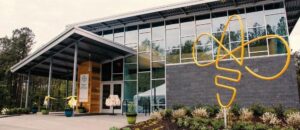
Bayer is taking its responsibility for bee health very seriously. Consequently, it is committed to environmental stewardship and sustainable agricultural practices, which naturally include the protection of beneficial insects such as honeybees. And Bayer is working with agricultural communities worldwide to ensure that its products, which are essential in protecting plants from pests and diseases, are used in a bee-responsible manner. That is just one key example of stewardship in action – for the good of sustainable agriculture.
GAME-CHANGING CERTIFICATION
Why proactive stewardship measures and certification are so important – to Bayer and the whole seed treatment industry. An interview with Peter Ohs, Senior Global Stewardship Manager Bayer SeedGrowth at Bayer CropScience.
Why is proactive stewardship so important?
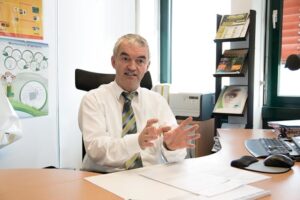
“We see Bayer’s responsibility as ensuring that our products are being used safely and contributing to the benefit of people’s lives. It is especially in seed-applied technologies in Europe that our proactive stewardship measures can make a difference. Proactively looking at what is going on with our products in the market and implementing what is necessary to further improve the professionalism in this segment together with our customers is what drives us. This is all about stewardship and why it is so important for us.”
What are the current and future focal points of your stewardship work?
“Regarding seed-applied technology, our current focus is on the implementation of best management practices in seed treatment and sowing. As to the future, one main focal point will be the certification of seed treatment sites.”
Why is certification a key focal point?
“Certification increases transparency and monitors the implementation of stewardship measures. And certification is proven by independent certification bodies. My personal opinion is that certification of seed treatment sites is the best way of demonstrating professionalism in this field – it’s the measure that ensures we all keep our license to sell. Certification has the potential to change the game!”
Visit www.seedgrowth.bayer.com, learn more about our “You never work alone” stewardship approach and see how stewardship influences our business and the business of our worldwide customers every single day.



